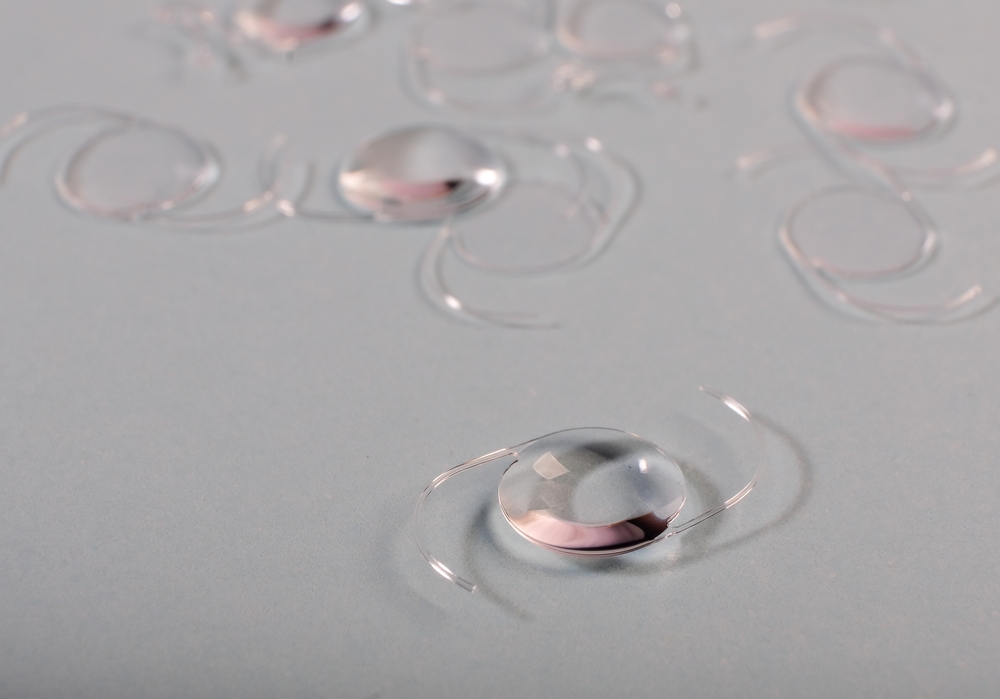Pros and Cons of Cataract Surgery with Multifocal Lenses
April 18, 2024
Cataracts are a natural part of the aging process that occurs within the eye's lens. While there are many different types of cataracts, they primarily impact older adults.
This is because as people age, the proteins that make up the eye lens begin to break down and clump together, causing a clouding of the lens known as cataracts. Cataracts can impact your quality of life and make it more challenging to do daily tasks like reading or driving to work.
As cataracts worsen, glasses and contacts often aren't enough to improve our vision. Luckily, cataract surgery is a permanent solution that removes cataracts.
At Arlington Eye Center, we offer cataract surgery with multifocal lenses, which can allow you to have greater visual freedom after the procedure. Keep reading to learn more about cataract surgery, including the pros and cons of multifocal IOLs!
What Is Cataract Surgery?
Cataract surgery is a minimally invasive treatment option for cataracts. During cataract surgery, your eye doctor will remove your natural lens and replace it with an artificial one of your choosing.
The artificial lens is known as an IOL or intraocular lens. With a IOL, you no longer have to live with negative symptoms of cataracts.
Cataract surgery can improve your vision and reduce the need for contacts or glasses.
Do you think you might be experiencing cataract symptoms?
What Are Multifocal Lens?
During cataract surgery, your cataract surgeon will take out your eye's lens to replace it with an IOL. But not all IOLs are the same.
In fact, there are different types. Monofocal lenses and multifocal lenses are the two most common. Multifocal lenses consist of several local zones within the small lens itself.
With a multifocal lens, your brain can adjust to the various zones to focus your vision on a task at hand, such as looking into the distance while driving or reading at a close distance. Because multifocal lenses have multiple focal points, they can improve your vision at near and far distances.
Monofocal lenses, on the other hand, have only one focal point, so they can only improve vision at one distance. This means that if you choose a monofocal IOL, you will need to wear glasses for certain activities.
Pros Of Multifocal Lenses
 Multifocal lenses are popular with many patients and are generally considered a more advanced IOL. While they aren't always right for all patients, there are many advantages of receiving a multifocal lens during cataract surgery.
Multifocal lenses are popular with many patients and are generally considered a more advanced IOL. While they aren't always right for all patients, there are many advantages of receiving a multifocal lens during cataract surgery.
Improved Close-Up & Distance Vision
The most significant advantage of a multifocal lens is that you can see better whether you're looking at something close up or far into the distance. With improved nearsightedness and farsightedness, you'll find it easier to do all the things you love, including daily tasks like reading, writing, and enjoying hobbies.
Less Reliance On Glasses Or Contacts
Another significant benefit of multifocal lenses is that they reduce the need for glasses or contacts. Many patients are able to greatly reduce their dependence on visual aids after cataract surgery.
Schedule a Cataract Evaluation
Cons Of Multifocal Lenses
While multifocal lenses are a great option, they have some downsides. It's important to know about these so you can make the right decision for your needs.
Potential Halos Around Lights
The main potential downside of choosing a multifocal lens is that you may notice halos around lights, particularly at night. This can annoy some people, but it's usually not severe enough to keep you from seeing well.
It's also important to note that some multifocal IOLs are less likely to produce this side effect than others.
Your Eyes May Take Time To Adjust
Because these lenses allow your eye to focus on different focal points, it can take your eyes a bit longer to adjust to the new lens. After a couple months, your vision should stabilize.
However, this is likely to occur with any type of lens choice as your eyes recover from the procedure.
How To Determine If A Multifocal Lens Is Right For You
Multifocal lenses can remove cloudy vision and improve our quality of life. But, they aren't the only type of lens you can receive during cataract surgery. 
Before choosing a multifocal lens, you'll want to consider a few factors, such as your:
- Vision Goals: You'll also want to work with your eye doctor to determine your vision goals. What kind of tasks do you do that are impacted by your cataracts? Answering these questions can help you find the right lOL.
- Lifestyle: For example, if you often drive at night, halos around lights may be a negative. In this case, a monofocal lens might be the better choice.
Multifocal Lens Options At Arlington Eye Center
At Arlington Eye Center, we offer multifocal lens options for cataract surgery patients because these lenses can improve your vision overall.
We use the AcrySof® IQ PanOptix® Trifocal Lens because it's the only trifocal lens available in the U.S. and has a high patient satisfaction rate. In fact, 99% of patients who receive the PanOptix lens say they would choose it again if they had the chance.
With this advanced multifocal lens, you'll see improved near and intermediate vision and find that your vision is much sharper. AEC also offers many other premium multifocal lenses and will work with you to find the best option.
Learn More About Cataract Surgery
Considering cataract surgery to improve your vision? Are you wondering which type of lens is best for you? The best way to know if cataract surgery is a good option is to schedule an appointment at Arlington Eye Center in Virginia.
One of our ophthalmologists will examine your eyes and discuss treatment options, including the best type of IOL to restore your vision. Schedule an appointment at Arlington Eye Center in Arlington, VA, today!



